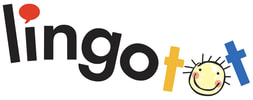I get asked this question a lot. Because I run foreign language sessions for babies, toddlers and young children, some parents approach me concerned that they’ve “left it too late” to start. The great news is that it’s never too early or two late to start learning another language! There are distinct advantages to starting to learn at different ages.
Adult learners are very motivated. Perhaps you regret not learning a language when we were younger, perhaps you need to use it for work, but whatever the reason you can bet you don’t have a lot of spare time so your dedication will be second-to-none! There’s no slacking off for adults, they hammer the books hard!
At the start of secondary school, learners go through what I like to call a brain growth spurt! This is an ideal time to learn lots of new things, including a language. Perhaps this is one of the reasons why languages were traditionally introduced at aged eleven in the UK. At this age, children already know how to learn which gives them an amazing head start over younger children.
Primary school children have lots of enthusiasm for language learning. They love to show off what they have learned and they are curious about other cultures. As they are beginning to read and write, they have a range of sources they can access for help in their language learning. They can begin to read in the foreign language and try some writing too. All of these skills make for a great start and they often make better progress than babies and toddlers in the beginning.
Having said all of that, I personally believe the best time to start introducing a second language is when they are babies or toddlers. Very young children will pick up the language in the same way as they learned their mother tongue, naturally and easily. Think of it this way: When a baby is born, it has no idea where in the world it is going to arrive. It’s brain is lovely and flexible, ready to soak up any new language is hears. At about the age of 8-10 months, the baby then starts to “tune in” to the language(s) it hears around him/her. This means that foreign language sounds which do not exist in the mother tongue, start to be “tuned out” ever so gradually. You can read more about this here and here.
Many experts do agree that there seems to be an ‘optimal’ time period for learning a second language: from birth to three years. In other words, right when a child is learning the first language. The time when his/her mind is still open and flexible. Learning a second language boosts toddlers’ brain function.
It has even been suggested that babies born to bilingual mothers who regularly spoke both languages during pregnancy exhibit different language preferences than infants born to mothers speaking only one language.
I often hear people say that children are like “sponges” who “soak up” language effortlessly. If this is the case, then why not take advantage of this incredible skill to introduce new languages to them? Just imagine, you could save them from hours and hours conjugating verbs in a classroom, sweating over pages of vocabulary learning and an accent that’s never quite right. Instead you could nurture not only their language skills, but their love of that language too!

 RSS Feed
RSS Feed
